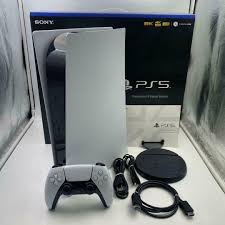Being excellent with money entails more than simply getting by. Don't be concerned if you're not a math wiz; strong arithmetic abilities aren't required; you simply need to know basic addition and subtraction.
When you have solid financial abilities, life is lot easier. Your credit score and the amount of debt you wind up carrying are affected by how you spend your money. If you're having trouble with money management concerns, such as living paycheck to paycheck while earning more than enough money, here are some suggestions to help you improve your financial habits.
When faced with a purchasing decision, especially one that involves a major purchase, don't just assume you can afford it. Confirm that you can afford it and that you haven't previously used those dollars for another purpose.
This entails determining if you can afford a purchase based on your budget and the balances in your checking and savings accounts. Remember that just because the funds are available does not imply that you can make the purchase. You must also evaluate the bills and costs that must be paid before your next payday.
How to Manage Your Money More Effectively
1. Make a budget: Many individuals don't budget because they don't want to go through what they perceive to be a tedious process of documenting spending, adding up figures, and ensuring everything is in order. If you're lousy with money, there's no space for excuses when it comes to budgeting. Why wouldn't you do it if all it takes to keep your spending under control is a few hours each month spent working on a budget? Instead than focusing on the process of developing a budget, consider the benefits of budgeting in your life.
2. Use the budget: Your budget is meaningless if you create it and then store it in a folder on your bookshelf or filing cabinet. Refer to it frequently during the month to assist you make spending decisions. It should be updated when you pay bills and spend money on other monthly costs. You should have an understanding of how much money you have available to spend at any one point of the month, taking into account any obligations you still owe.
3. Set a limit for yourself for unplanned spending: The net income, or the amount of money left over after deducting your costs from your revenue, is an important component of your budget. If you have any extra money, you can spend it on pleasure and enjoyment, but only up to a specific limit. You can't go crazy with this money, especially because it isn't much and needs to last the entire month. Before making any major purchases, ensure that they will not conflict with anything else you have planned.
4. Keep track of your spending: Small purchases add up quickly, and before you realize it, you've gone over your budget. Begin tracking your expenditures to identify areas where you could be unwittingly overpaying. Keep your receipts and record your purchases in a spending diary, classifying them so you can find areas where you struggle to keep your spending under control.
5. Do not sign up for any new recurring monthly bills: Simply because your salary and credit qualifies you for a loan does not mean you should accept it. Many consumers mistakenly believe that the bank will not accept them for a credit card or loan that they cannot afford. The bank is only aware of your stated income and the debt commitments on your credit report, not any additional responsibilities that may prohibit you from completing your payments on time. It is your responsibility to determine if a monthly payment is affordable depending on your income and other monthly responsibilities.
6. Check to see whether you're getting the greatest deal: You may save money by comparison shopping and verifying that you are paying the lowest price for items and services. Look for discounts, coupons, and less expensive options wherever possible.
7. Save for large purchases: Being able to wait gratification can help you be a better money manager. When you postpone significant expenditures, rather than sacrificing other vital necessities or placing the purchase on a credit card, you allow yourself more time to consider whether the purchase is required and even more time to compare pricing. You avoid paying interest on the purchase if you save instead of utilizing credit.And if you save instead of skipping bills or commitments, you won't have to cope with the various penalties of failing to pay those expenses.
8. Limit your credit card purchases: Credit cards are the biggest enemy of a bad spender. When you run out of cash, you immediately go for your credit cards, regardless of whether you can afford to pay the debt.Resist the impulse to use your credit card to make un affordable expenditures, especially on products you don't truly need.
9. Contribute to savings on a regular basis: Making a monthly deposit into a savings account will help you develop good financial habits. You may even set it up so that money is sent automatically from your checking account to your savings account. You won't have to remember to make the transfer this way.
10.Being excellent with money requires practice: you may not be used to preparing ahead of time and deferring purchases till you can afford them at first. The more you include these practices into your daily routine, the easier it will be to manage your money and the better off your finances will be.









